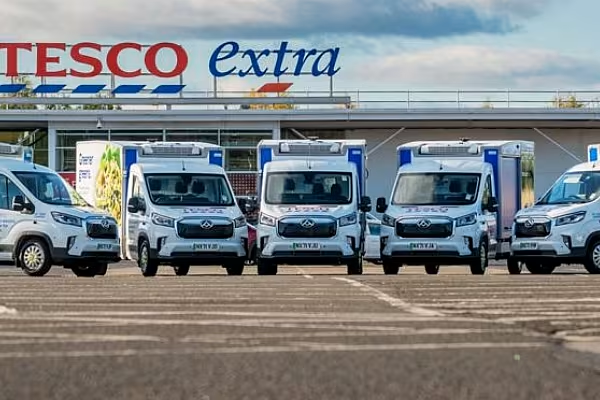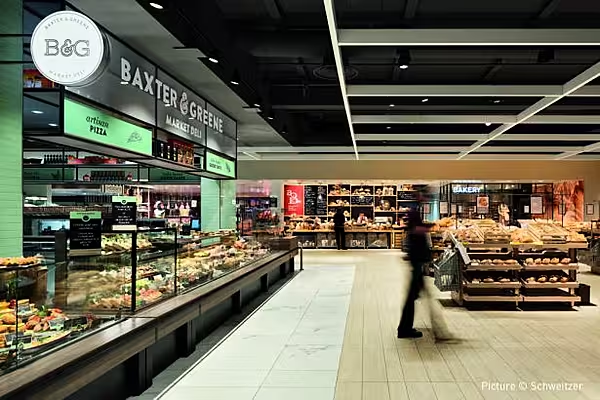Tesco has switched to an all-electric home delivery fleet in Glasgow as part of its efforts to become net zero in its operations by 2035.
The transition makes Glasgow the first city in Scotland where Tesco has moved its entire fleet to electric delivery vehicles.
The initiative comes at a time when the city is hosting the COP26 conference.
Jason Tarry, Tesco UK and ROI CEO commented, "In this critical decade for climate action, businesses must play a key role in driving transformational change. As part of our efforts to secure a COP26 legacy for Glasgow, I'm delighted that Glasgow will be the first Scottish city to transition to an all-electric Tesco home delivery fleet.
"We're also increasing our use of rail distribution to take more emissions off our roads and helping boost UK's renewable energy capacity by investing in renewable energy infrastructure, including nine new wind and solar farms across Scotland and throughout the UK."
All-Electric Fleet
Starting this week, thousands of households across Glasgow will have their shopping delivered by one of 17 new all-electric Tesco delivery vehicles.
The retailer will fulfil more than 3,700 deliveries per week, covering nearly 8,000 miles in and around Glasgow without any emissions along the way.
By 2028, 100% of all Tesco's 5,500 home delivery vans across the UK will be fully electric, the retailer noted.
Minister for Transport Graeme Dey said, "Government, individuals and businesses all have a role to play when it comes to taking climate action. This is a welcome step from Tesco, looking to secure a lasting legacy from COP26 […].
"This is just the beginning of action taken by Tesco and it is encouraging that the company is expanding the use of rail freight for the movement of fresh produce, investing in renewable energy infrastructure and decarbonising its entire home delivery fleet by 2028."
Other Initiatives
Tesco added that it will support customers transitioning to electric vehicles by providing EV charging points.
By the end of 2022, customers will be able to charge their vehicles at one of 2,400 charging points across 600 stores, including 72 in Scotland.
In addition, the retailer is supporting new renewable energy infrastructure by investing in five new wind farms in Scotland and four new solar farms across the UK.
In October, Tesco said it plans to expand its use of train services to bring goods from Spain into the country, which helped it cut emissions and protect deliveries through a truck drivers' shortage.
Currently, five trains per week transport fresh produce for Tesco customers from Spain to England.
By the end of this year, a new rail service will run directly from Spain to Scotland as the business expands its use of rail freight from 65,000 containers to around 90,000.













